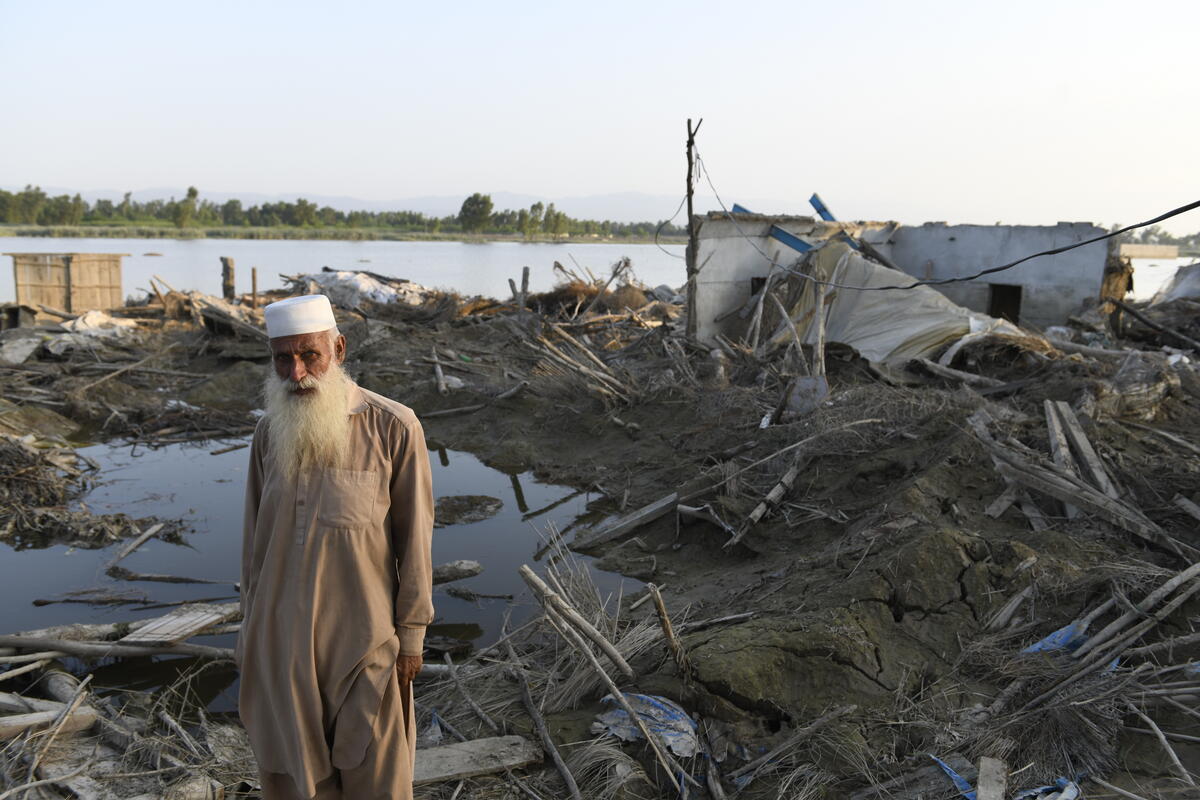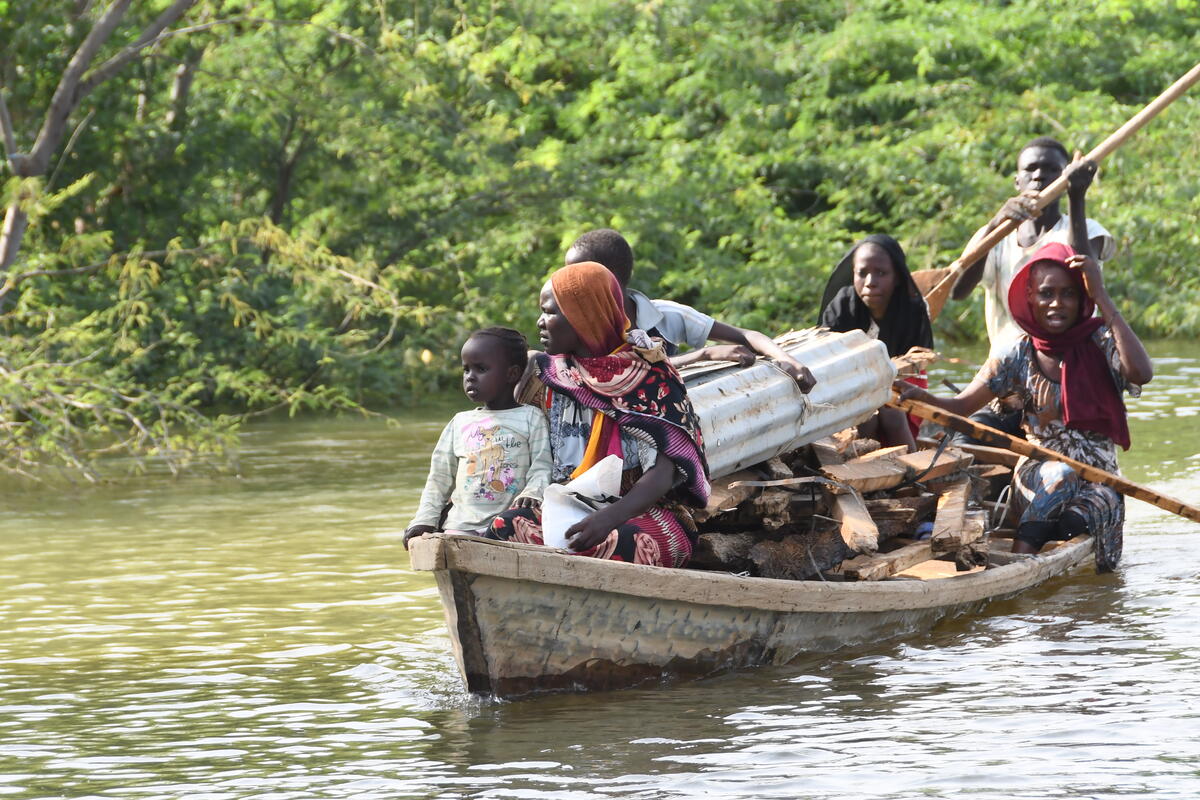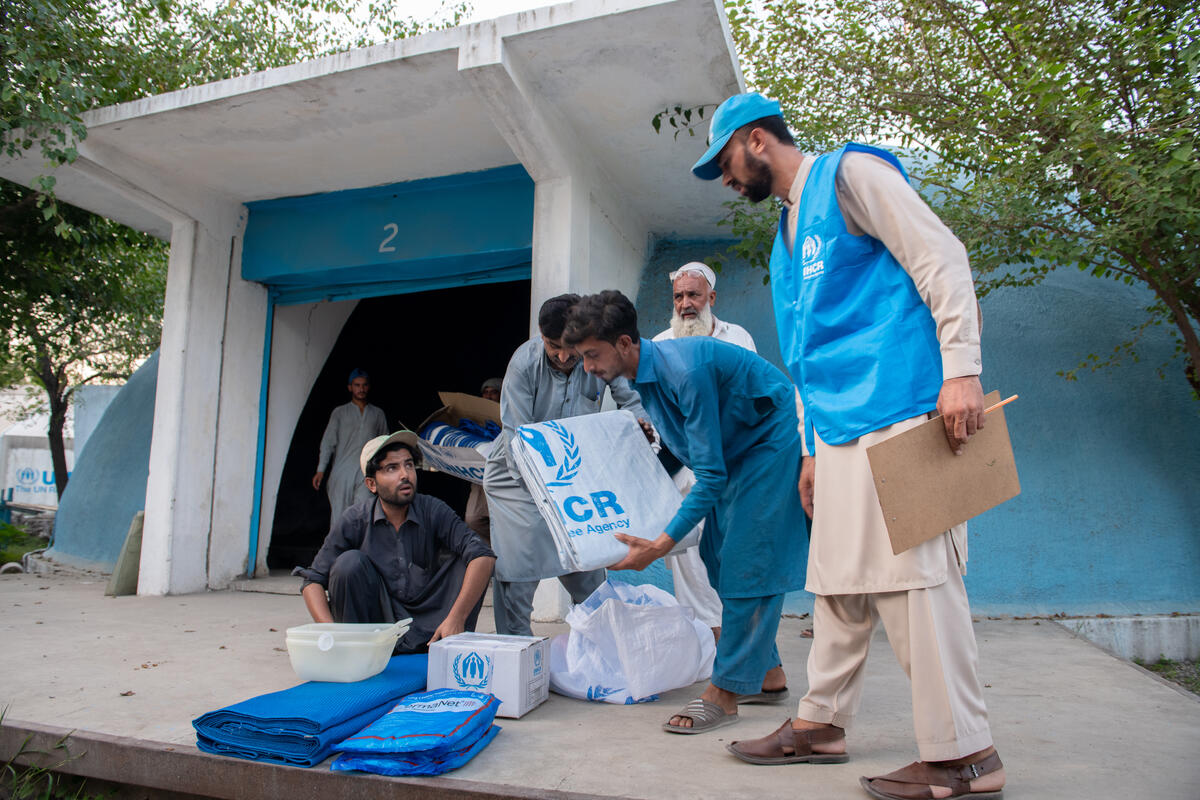Chad: rains now hampering efforts to reach border Sudanese
Chad: rains now hampering efforts to reach border Sudanese
The rainy season has now started in earnest in eastern Chad and is severely hampering our efforts to reach tens of thousands of Sudanese refugees remaining at the border. From Friday to Sunday, it was impossible to drive from Abéché to the border town of Adré because one of the main wadis (seasonal river beds) was full of water. On Sunday, a team of nine staff from UNHCR and partner agencies on their way to Breidjing camp and a new camp site at Treguine were forced to stop at the flooded wadi. Some of the team members crossed the wadi on foot and hired a small truck on the other side to continue on to Breidjing and Treguine to conduct water supply evaluations.
Over the weekend, two UNHCR trucks also got stuck in the same wadi. One managed to drive out, while the other remains stuck. The trucks were empty when they got stuck, which shows how much more difficult it will be soon to travel on these roads with trucks loaded with food, relief supplies or refugees.
In the northern areas around Iriba and Bahai, the rains are still infrequent and our operations are continuing without major interruptions. Further south, however, there is rain almost every other day, and the roads from Abéché to Goz Beida are cut off. Goz Beida for the moment is only reachable by plane.
Fortunately, in the south - where Djabal and Goz Amer camps are located - enough food and relief supplies have been pre-positioned to last until November when the rains should be over. The relocation of refugees from the border to the camps in this area is basically completed, and the 13 trucks which were being used for supplies and relocation convoys have now been moved north to Adré to help speed up the transfer of some 14,000 refugees still at the border there.
To make sure our offices in the south and near Adré will remain accessible, we are positioning a second UNHCR plane at Abéché, to make the short hops between the field offices and to ferry in supplies if needed. The plane should be in place next week.
In another fresh development, on Sunday morning, a team from our partner Norwegian Church Aid (NCA) had their vehicle highjacked on the way from Touloum camp to Iridimi camp. This is the first incident of this kind we have had in Chad. The NCA vehicle was flagged down by a man standing along the road, who then pulled out a gun, boarded the pickup and ordered them to drive to the bush. They were then made to pick up a group of seven heavily armed unidentified masked men in military clothing who ordered the NCA staff to continue driving into the bush. The humanitarian workers were finally released near the town of Bahai at around 4:30 pm. The highjackers removed the NCA and UNHCR logos which were on the doors of the car and drove away.
Meanwhile, relocation of refugees from Bahai and Cariari to the new site at Oure-Cassoni, north of Bahai, is scheduled to start next week after UNICEF and UNHCR's partner the International Rescue Committee complete a measles and polio vaccination programme. The vaccination campaign should start tomorrow, as two cases of measles have been detected in recent days among the refugees in Bahai. At Oure-Cassoni, 750 tents have already been set up, 1,250 more will be installed in the coming days and another 2,000 are expected to arrive in the near future. The site is located 20 kilometres away from the border - rather than the preferred 50 km as used for the other camps - because it has proven impossible to find a site in this area with enough water resources at a 50-km distance from the border. For Oure-Cassoni, three trucks will bring in water from the nearby lake at first. In the longer term, the refugees will be able to get water from six wells, four of which are already under construction.
In all, more than 118,000 refugees have been relocated from the border to camps inside Chad. The vast majority have been moved on UNHCR convoys, which are now ferrying some 1,500 people per day to the camps. Thousands of refugees have also travelled on their own to the camps, and these refugees have now all been integrated into the camps. In some cases, refugees have come on their own to camps that were already at full capacity - particularly at Touloum and Iridimi camps - and we have had to transfer these refugees to other camps which could still accommodate them.









